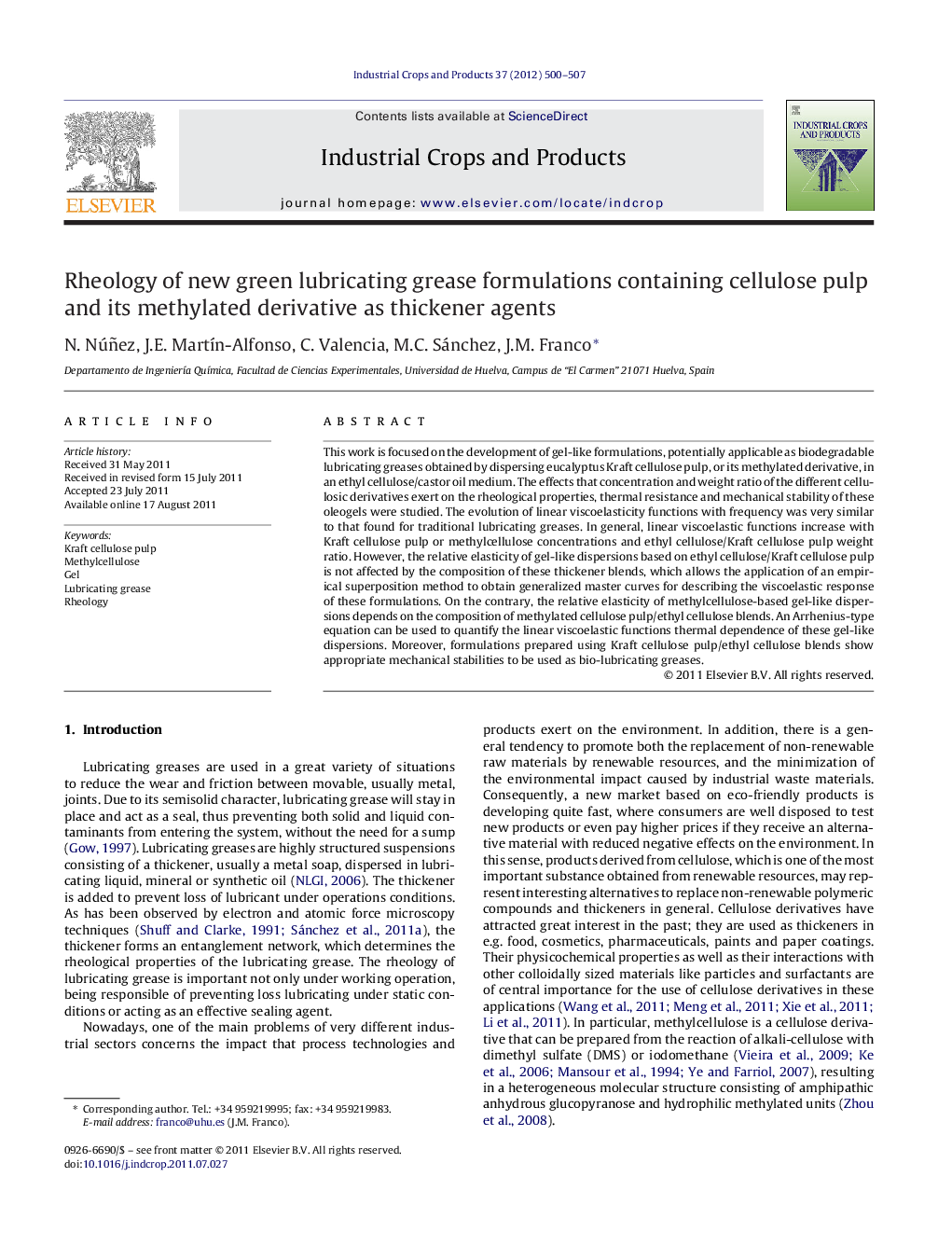| Article ID | Journal | Published Year | Pages | File Type |
|---|---|---|---|---|
| 4514262 | Industrial Crops and Products | 2012 | 8 Pages |
This work is focused on the development of gel-like formulations, potentially applicable as biodegradable lubricating greases obtained by dispersing eucalyptus Kraft cellulose pulp, or its methylated derivative, in an ethyl cellulose/castor oil medium. The effects that concentration and weight ratio of the different cellulosic derivatives exert on the rheological properties, thermal resistance and mechanical stability of these oleogels were studied. The evolution of linear viscoelasticity functions with frequency was very similar to that found for traditional lubricating greases. In general, linear viscoelastic functions increase with Kraft cellulose pulp or methylcellulose concentrations and ethyl cellulose/Kraft cellulose pulp weight ratio. However, the relative elasticity of gel-like dispersions based on ethyl cellulose/Kraft cellulose pulp is not affected by the composition of these thickener blends, which allows the application of an empirical superposition method to obtain generalized master curves for describing the viscoelastic response of these formulations. On the contrary, the relative elasticity of methylcellulose-based gel-like dispersions depends on the composition of methylated cellulose pulp/ethyl cellulose blends. An Arrhenius-type equation can be used to quantify the linear viscoelastic functions thermal dependence of these gel-like dispersions. Moreover, formulations prepared using Kraft cellulose pulp/ethyl cellulose blends show appropriate mechanical stabilities to be used as bio-lubricating greases.
► Kraft cellulose pulp and its methylated derivative as bio-thickener agents to formulate gel-like dispersions in castor oil, potentially applicable as biodegradable lubricating greases. ► Rheological response of gel-like dispersions is influenced by the type and concentration of the cellulosic pulp derivative employed. ► The relative elasticity of gel-like dispersions based on Kraft cellulose pulp/ethyl cellulose blends is not affected by the composition of these thickener blends but depends on the composition of methylated cellulose pulp/ethyl cellulose blends. ► Formulations prepared using Kraft cellulose pulp/ethyl cellulose blends show acceptable mechanical stability, which decreases by increasing the ethyl cellulose/Kraft cellulose pulp ratio.
